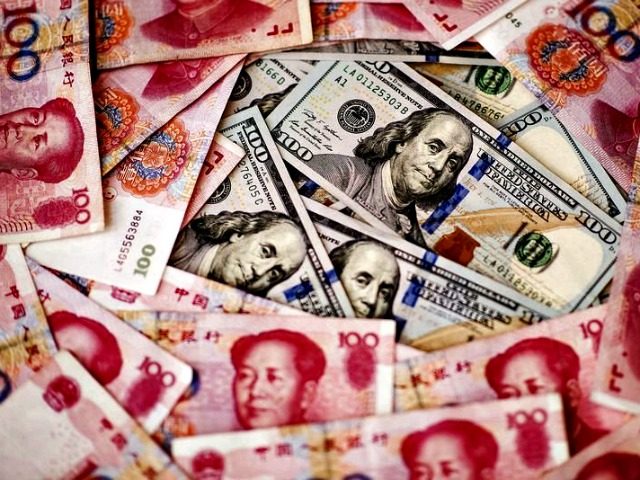Dirty cash may fuel the spread of the novel Chinese coronavirus, which is currently more than three times deadlier than the seasonal flu, the World Health Organization (WHO), a United Nations agency, warned this week.
Nevertheless, WHO Director-General Tedros Adhanom Ghebreyesus told reporters on Tuesday that controlling the spread of the disease is within the grasp of health officials despite the disease’s high fatality rate, which the Associated Press (AP) reported is subject to fluctuation, and “it’s far too soon to predict whether it ultimately winds up worse than flu or about the same.”
The Telegraph reported on Monday:
Banknotes may be spreading the new coronavirus so people should try to use contactless payments instead, the World Health Organization has said.
Customers should wash their hands after touching banknotes because infectious [coronavirus] may cling to the surface for a number of days, the UN agency said on Monday night.
To prevent the spread of the disease, people should use contactless technology where possible, a spokesperson added.
Although the coronavirus, known as COVID-19, is deadly and capable of triggering a global pandemic, Tedros told reporters that health officials could contain the spread of the disease.
Tedros proclaimed during a press conference on Tuesday:
COVID-19 spreads less efficiently than flu, transmission does not appear to be driven by people who are not sick, it causes more severe illness than flu, there are not yet any vaccines or therapeutics, and it can be contained – which is why we must do everything we can to contain it.
“We can push this virus back,” he stressed while addressing all countries on Wednesday.
“Your actions now will determine the course of the outbreak in your country,” Tedros added. “This must be a top priority for every country. We are concerned that in some countries, the level of political will does not match the level of the threat we face.”
Tedros noted that while many people across the world have built up immunity to the flu, no one has a resistance to the new coronavirus plaguing various corners of the globe.
“That means more people are susceptible to infection, and some will suffer severe disease,” the WHO chief said. “Globally, about 3.4 percent of reported COVID-19 cases have died. By comparison, seasonal flu generally kills far fewer than one percent of those infected.”
According to AP, however, “the U.N. agency is reporting a number that health authorities know will keep fluctuating.”
The WHO chief pointed out that there are vaccines and therapeutics to treat the seasonal flu, but there is no vaccine and no specific treatment for coronavirus.
While testifying before a Senate panel on Tuesday, Dr. Anthony Fauci, the director for the National Institute of Allergy and Infectious Diseases (NIAID), declared that “it will take at least a year [or] a year and a half” to develop and deploy a coronavirus vaccine.
NIAID is a component of the National Institutes of Health (NIH).
The WHO leader urged countries to intensify containment efforts and measures to protect doctors and nurses on the frontlines.
He cautioned that shortages of personal protective equipment and related price gouging fueled by “rising demand, hoarding, and misuse” were putting countries’ abilities to respond to the epidemic at risk.
Tedros urged the private and public sectors to increase production by 40 percent.

COMMENTS
Please let us know if you're having issues with commenting.